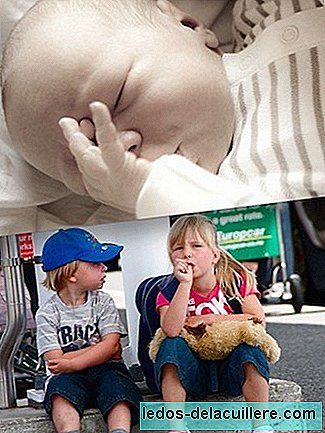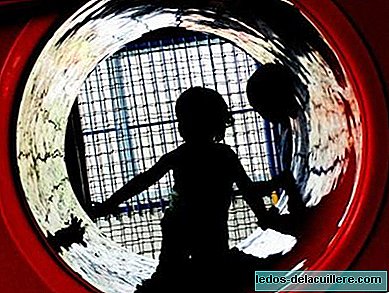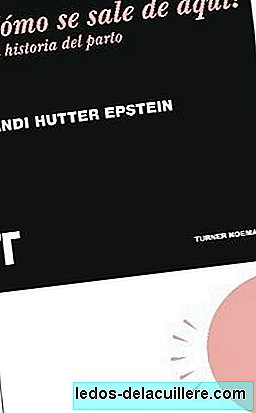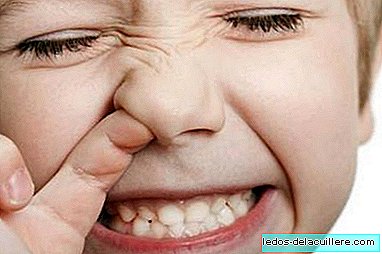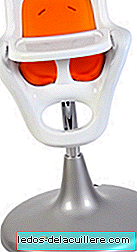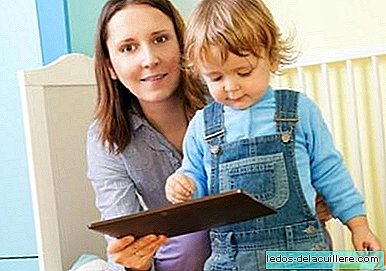It has been more than a year since the Spanish Agency for Medicines and Health Products (AEMPS) decided to consider the 'Bexsero' meningitis B vaccine as an optional prescription (pediatricians may recommend its administration to the parents of children who believe they should receive the vaccine) and for a few months, since the vaccine is present in pharmacies in greater numbers, doubts about the need and the risks of administering it have been increasing.
One of the possible side effects that scares parents and even health professionals the most is the Kawasaki disease, that appears in the 'Bexsero' leaflet as a risk to consider. To discuss this risk we have accessed the study that served the European Medicines Agency (EMA) to validate its commercialization and use in the European community in order to know what happened in the previous trials.
What it puts in the 'Bexsero' vaccine leaflet
Many parents ask me in the consultation about the side effects of the vaccine. Most of the time, if not all, the most it causes is fever which starts soon, being the highest peak after 6 hours of administration. It also bothers a bit locally, sometimes generating inflammation in the area in which it is administered.
Apart from this I have not seen any worrying case, although other side effects such as vomiting, diarrhea, paleness, etc. are mentioned in the package leaflet. Now, the most serious thing it says is that it could rarely happen Kawasaki disease:
Rare (may affect up to 1 in 1,000 people): Kawasaki disease, which may include symptoms such as fever that lasts more than five days, associated with a rash on the trunk and, sometimes, followed by peeling of the skin of hands and fingers, glandular swelling in the neck and redness of eyes, lips, throat and tongue.
Sure, one in 1,000 people are many people, if we compare the data with the incidence of Meningitis B in our country. According to the Ministry of Health, the incidence in 2014-15 was 8.01 cases per 100,000 in children under 1 year and of 2.18 cases per 100,000 in children between 1 and 4 years old. If around 400,000 children are born in Spain every year, it could be said that of all these babies, only 32 will suffer from the disease before their first birthday. After that age, there will be 8 cases until they turn 4.
But if 1 in 1,000 people vaccinated could suffer from Kawasaki disease, one wonders to what extent it is worth putting a vaccine with such a low incidence at the risk of suffering from this other disease.
What is Kawasaki disease?
Of course, to assess the situation, you have to know what Kawasaki disease is. You can read about it here, although I tell you that it is a inflammation of the blood vessels that produces fever, swelling, redness of various areas of the body and that, if not treated in time, can damage the coronary arteries and the same heart. It is estimated that it has a mortality of 1 percent (1 in 100 does not exceed the disease and dies).
When we talk about meningitis B, it is estimated that mortality is 10 percent (10 out of 100 people affected die), so if we calculate:
- If all babies are vaccinated (400,000 babies are born every year), 400 could suffer from Kawasaki disease (1 in 1,000). Of those 400, they could die 4 (1 in 100).
- If babies are not vaccinated, about 40 children could suffer from meningitis B (32 of those under one year old and 8 of those between 1 and 4 years old). Of those children they could die 4 (the 10%).
These calculations are very basic, and cases of meningitis B that would also occur despite vaccinating all babies (no vaccine is 100% effective) and those given without a vaccine over 5 years are being omitted, so take it as a quick calculation of probabilities in case anyone wants to draw any conclusions.
What does the study of the 'Bexsero' vaccine say
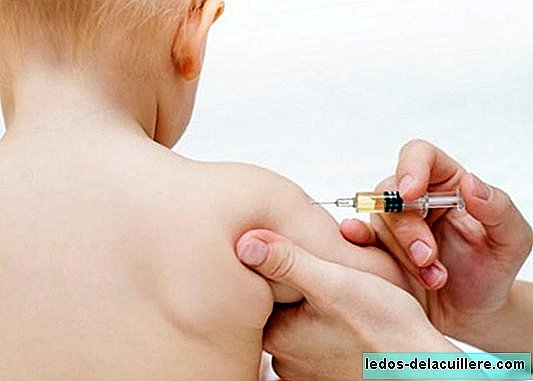
In the study, published in 2013, which made it said in the leaflet that vaccination could cause Kawasaki disease we can read the following:
Four cases of suspected Kawasaki disease were recorded during the primary phase, which were evaluated by an independent panel of experts as three confirmed cases and one unconfirmed case of Kawasaki disease. Two confirmed cases and one unconfirmed case occurred in the total of 2,480 infants to whom 4CMenB and routine vaccines were administered, 3, 7 and 14 weeks after vaccination, respectively; the other confirmed case occurred at 2 weeks in one of the 1,149 infants who received MenC and routine vaccines. No cases of Kawasaki disease were recorded after the 4CMenB recall dose.
That is, during the studies a group of children was formed who were given the 4CMenB (Bexsero) vaccine next to routine vaccines, and another group who were given the MenC (meningitis C that Spanish children were administered for more than 15 years) together with routine vaccines, as a control group to take as a reference.
In the group of children with Bexsero there were two cases in which Kawasaki disease was diagnosed and a case that looked like it, but that was not confirmed as such. In the group of children with MenC there were a case of Kawasaki disease.
In another paragraph of the study they discuss the subject again and say the following:
We observed two confirmed and one unconfirmed cases of Kawasaki disease in participants who had been given 4CMenB. Although the causality with respect to 4CMenB and routine vaccines was not clear, we could not rule out a possible association with the vaccine in the case that appeared at 3 weeks (the only one with cardiac signs) and in the one that appeared at 7 weeks of vaccination, although in the latter a relationship with vaccination was considered less likely. The low number of cases identified here prevents definitive conclusions, but their detection demonstrates the need to continue monitoring in future trials and after the marketing authorization, in order to determine if their frequency is within the existing limits in general in the population of infants, since these rates continue to increase with the improvement of diagnostic techniques and increasing knowledge of this disorder.
That is, the cases could be due to the vaccine, or they could not be due to it, and they left the door open to continue studying this possible relationship, while just in case they decided to add in the prospectus the paragraph that I have mentioned above.
And now, what do we know about the risk of Kawasaki disease?
Well, to date, with all vaccines administered, which are counted by hundreds of thousands, there seems to be no more cases of said disease. The vaccine advisory committee of the AEP explains it perfectly in this link from which I extract the following:
So far, the vaccine has been used in two outbreaks of meningococcal disease by serogroup B at two universities in the United States, in which more than 28,000 doses of Bexsero have been administered without registering any case of Kawasaki disease.
The same has happened in Saguenay-Lac-St-Jean, district of Quebec, Canada, where there was an outbreak of invasive meningococcal disease B and the health authorities decided to administer vaccination with Bexsero to almost 50,000 people between 2 months and 20 years. A close epidemiological follow-up was established and no cases of Kawasaki disease have been recorded (nor have they had any more cases of meningococcal disease B).
All this allows us to consider that the development of Kawasaki disease as a complication of vaccination against meningococcus B is very unlikely. Time will allow to establish with certainty the existence or not of this relationship. Remember that, at the start of vaccination against rotavirus, the possible relationship with Kawasaki was also considered, a fact that practical experience has managed to rule out.
So, although it is not yet definitively concluded that the risk does not exist, the number of vaccines administered to date worldwide, and especially in the United Kingdom, where all babies are being vaccinated for a year, seem to show that in the three cases of the initial study there could be no causality.


